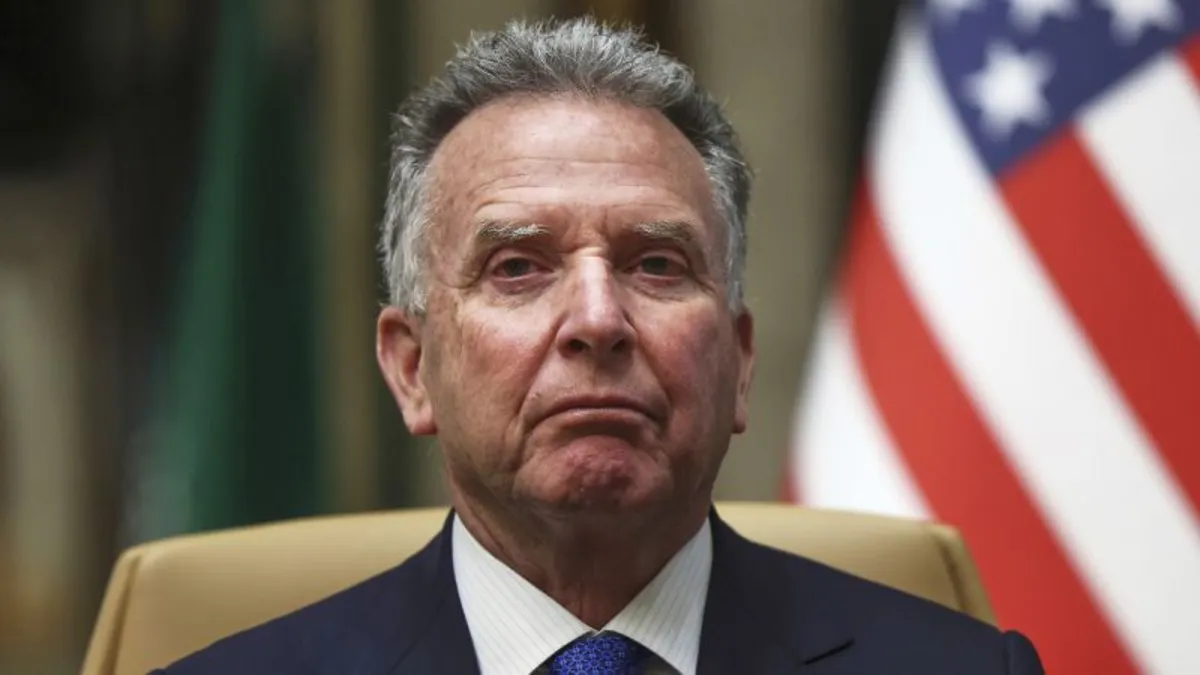
During a recent news conference, Russian President Vladimir Putin voiced his concerns regarding a proposed 30-day ceasefire in the ongoing Ukraine war. He stated that there are significant uncertainties about how the situation would unfold in regions like Kursk if such a ceasefire were to be implemented. Putin described the US proposal as “great and correct,” indicating that while Russia supports the idea in principle, there are still numerous aspects that require thorough discussion.
Putin's comments come at a time when American special envoy Steve Witkoff has arrived in Moscow to brief Kremlin officials on the peace plan. The Trump administration has emphasized that the responsibility to act now lies with Russia. Recently, the United States and Ukraine engaged in discussions in Saudi Arabia, where Kyiv agreed to proposals for a 30-day ceasefire supported by the US, aimed at securing peace across the entire frontline.
“We agree with the proposal to cease hostilities, but we must acknowledge that this ceasefire should aim for a long-lasting peace and address the root causes of the crisis,” Putin remarked after discussions with Belarusian President Alexander Lukashenko. This is not the first time Putin has emphasized the need to address what he terms the "root causes" of the conflict, previously attributing some of these issues to the current Ukrainian government.
Putin raised multiple questions regarding the logistics of a potential ceasefire, particularly how it would be verified, who would be responsible for issuing orders to halt hostilities, and the status of the Kursk region, where Ukrainian forces still occupy certain territories. “What will we do with this area in the Kursk region? If we stop military actions for 30 days, does this mean that everyone there will leave without a fight?” he queried during the press conference.
Earlier in the day, Kremlin aide Yuriy Ushakov expressed skepticism about the US ceasefire proposal, stating that Moscow does not desire a temporary ceasefire, as it would merely provide a respite for the Ukrainian military. Ushakov communicated Russia’s position to US National Security Adviser Michael Waltz in a phone call, asserting that the goal should be a long-term peaceful settlement rather than a temporary measure.
Ushakov also indicated that discussions about NATO involvement in Ukraine's future were off the table. Previously, Moscow has made it clear that the presence of NATO troops in Ukraine is unacceptable. Kremlin spokesperson Dmitry Peskov emphasized that Ushakov's remarks should not be interpreted as a rejection of the US proposal, noting that Moscow is awaiting more direct information before making a decision.
On Thursday, Russian foreign ministry spokesperson Maria Zakharova further rejected any foreign military presence in Ukraine, stating, “For us, it is absolutely unacceptable to deploy units of the armed forces of other states in Ukraine under any flag, whether it be a foreign contingent, military bases, or peacekeeping operations.” Zakharova warned that Russia would respond with “all available means” to any foreign military engagement.
When asked about the possibility of European troops serving as peacekeepers in Ukraine, US Secretary of State Marco Rubio mentioned, “There are different ways to construct a deterrent on the ground.” Meanwhile, President Donald Trump remarked that the decision to halt the war in Ukraine now rests with Putin, saying, “We’re going to have to see. It’s up to Russia now.”
In a significant development, the Russian military announced the recapture of Sudzha, a town in the Kursk region that had previously been under Ukrainian control. This recapture is viewed as a symbolic victory for Russia, undermining Kyiv's territorial bargaining position amidst ongoing negotiations to end the war. Despite Sudzha being a small town with a pre-war population of around 5,000, its strategic importance cannot be overlooked.
As the situation evolves, the international community continues to watch closely, awaiting further developments in the peace negotiations and the overall conflict in Ukraine.